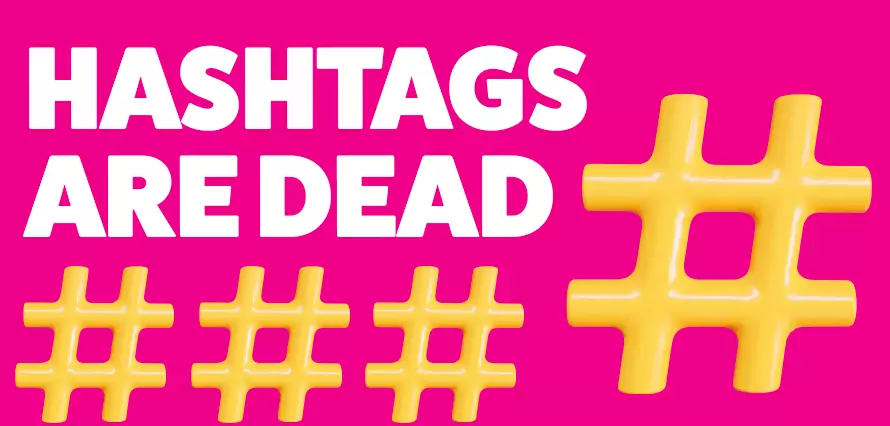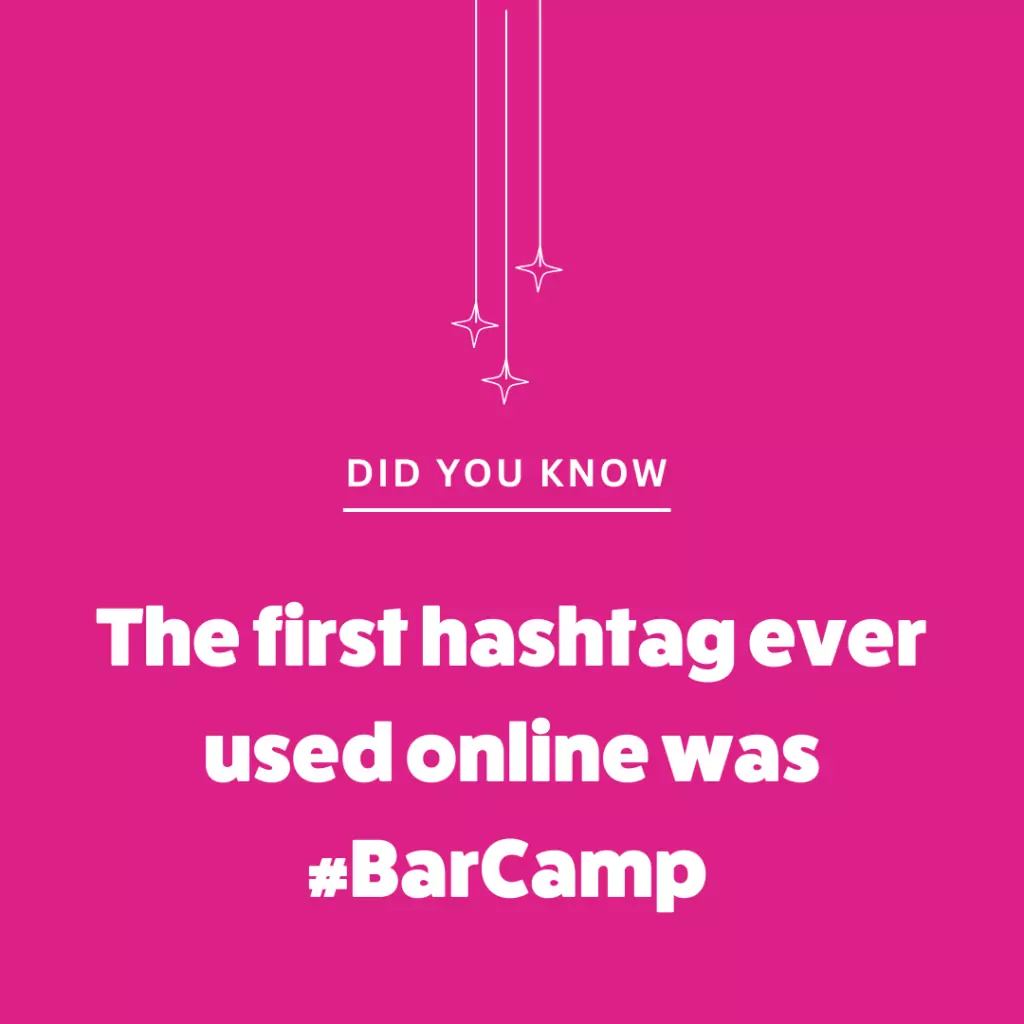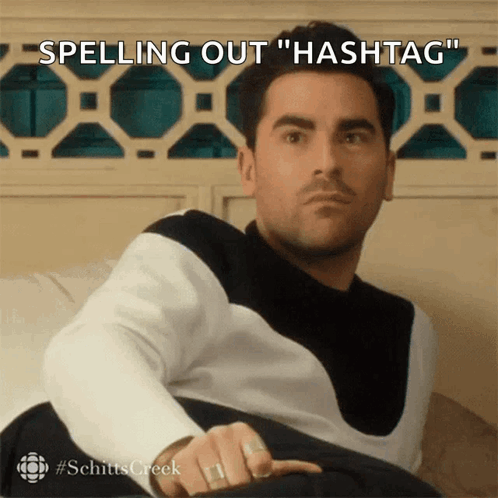March 10, 2025

There was a time when hashtags ruled social media. Marketers would cram as many as they could into a post, hoping for a golden boost in reach. And for a while, it worked. Instagram posts with 11+ hashtags once saw a 79.5% engagement increase (Sprout Social, 2025).

But those days are over.
Hashtags don’t hold the power they once did. Social platforms have evolved. AI now decides what content gets seen, and hashtags are little more than relics of an old system. In fact, on Facebook, hashtags make zero difference to reach (Social Insider, 2025).
Yet, many brands are still clinging to them, wasting time on a strategy that no longer works. If that’s you, it’s time to wake up. The platforms have moved on. And if you want to stay visible, so should you.
Table of Contents
The slow death of hashtags
The signs have been there for years. Algorithms have been getting smarter, and hashtags have become… well, a bit pointless.
Instagram’s Head, Adam Mosseri, admitted hashtags don’t boost reach: “They help with categorisation, but not distribution” (Instagram AMA, 2025). If that’s news to you, you’re already behind.
Pinterest has gone one step further, telling users to stop using hashtags altogether because they no longer help with search rankings (Pinterest Business Blog, 2025).
Even Twitter (or X, if you must call it that) is scaling back. Elon Musk has hinted that hashtags could be scrapped entirely because they “clutter posts” (Social Media Today, 2025).
So, where does that leave us?
If hashtags don’t drive reach, what does?
Hashtags used to be a shortcut for discovery. Now, discovery is driven by AI, search behaviour, and engagement signals.
Here’s what actually gets your content seen in 2025:
Social media is a search engine, so, optimise for it
People aren’t clicking on hashtags. They’re typing full questions into search bars. In fact, 67% of Gen Z now use social media as their primary search engine instead of Google (HubSpot, 2025).
And algorithms are adapting.
Instagram, LinkedIn, TikTok, and YouTube prioritise keywords in captions, descriptions, and video titles. That means a post titled “How AI is changing marketing in 2025” will get picked up by search far more than #AI #Marketing ever will.
What to do now:
- Use keyword-rich captions and descriptions that reflect how people search.
- Stop writing captions for the algorithm—write them for real people.
- On YouTube, optimise video titles and timestamps for search intent.
Engagement is the new algorithm currency
It doesn’t matter how many hashtags you use. If people don’t interact with your content, the algorithm won’t push it.
Algorithms now prioritise saves, shares, comments, and watch time. In fact, posts with high engagement get 3x more reach than those relying on hashtags (Sprout Social, 2025).
On Instagram, the most powerful signal is now saves. A post that gets saved multiple times is far more likely to show up in feeds than one packed with hashtags.
TikTok, meanwhile, prioritises watch time. If people watch your video to the end (or rewatch it), it gets pushed further.
What to do now:
- Write captions that encourage conversation (because comments = reach).
- Create content that makes people want to save and share.
- On TikTok, hook viewers immediately to keep watch time high.
Ai curates content now. Work with it, not against it
Social platforms don’t need hashtags to categorise content anymore. AI does it automatically.
Instagram’s Explore page, TikTok’s For You Page, and LinkedIn’s recommended posts all work based on engagement and content themes, not hashtags.
Even YouTube is in on it. YouTube’s AI detects visual and spoken words in videos to suggest relevant content (YouTube Creator Blog, 2025).
This means platforms are reading your content, not your hashtags.
What to do now:

- Make sure your captions, visuals, and spoken words match your content’s topic.
- Use clear, descriptive video titles and text overlays to help algorithms categorise your content.
- Lean into AI-powered recommendations rather than forcing discovery through outdated methods.
The proof: hashtags are fading, here’s what to do instead
By now, you’re seeing the trend. Social media has evolved. Hashtags are disappearing. AI and search-first strategies are taking over.
Let’s make it crystal clear. Here’s how every major platform has moved on, and what to do instead:
| Platform | Algorithm Priority for Hashtags | Search & Discoverability Impact | Engagement Boost (%) | AI Optimisation vs. Hashtags | Best Practices for Hashtags | Alternative Discovery Methods |
| Low | Limited – SEO captions outperform hashtags | +29% with at least one hashtag, but AI recommendations are stronger | AI-First | Use 2-5 niche hashtags, but prioritise keywords in captions | Keyword-rich captions, Instagram Explore AI recommendations | |
| Negligible | Not Recommended – Little effect on reach | No measurable impact | AI-First | Not recommended | Engagement-based ranking, Facebook Groups, AI-driven feed placement | |
| Medium | Useful for niche communities, but minimal reach impact | No significant boost | Hybrid (Keyword + Hashtag Mix) | Use 3 relevant hashtags max (industry + niche) | Topic-based content, conversations, keyword optimisation | |
| TikTok | Medium-High | Essential – Still a factor in trends & search | Trending hashtags can increase visibility | AI + Search Optimised | Use 3 trending + 2 niche hashtags for search optimisation | Keyword-rich captions, AI-powered recommendations, video engagement signals |
| Twitter (X) | Medium | Useful for trending topics & event participation | +100% engagement for individuals, +50% for brands when used in trends | Hybrid | Use 1-2 hashtags only for real-time events | Conversational engagement, trending topics, high-retention content |
| YouTube | Low | Limited – Titles and descriptions have stronger search impact | No measurable impact | AI-First | Not a priority, use 1-2 category tags if needed | SEO-optimised titles, descriptions, chapters, and AI-driven recommendations |
| Negligible | Not Recommended – Hashtags were officially deprioritised | No impact | AI-First | Avoid hashtags, focus on natural search terms | Keyword-optimised pin descriptions, Pinterest AI-based content suggestions | |
| Threads | Negligible | Not Recommended – Limited to one topic tag per post | No impact | AI-First | Use one relevant topic tag | Keyword-rich content, conversational engagement |
| Low | Limited – Subreddit discovery outweighs hashtag impact | No impact | AI-First | Not recommended | Subreddit participation, upvote-driven visibility, keyword targeting | |
| Snapchat | Negligible | Not Recommended – No effective search impact | No impact | AI-First | Not supported | Engaging Stories, AI-powered content discovery |
| WhatsApp (Channels & Status) | Negligible | Not Recommended – No search function for hashtags | No impact | AI-First | Not supported | Keyword targeting in channel descriptions, AI-driven discovery |
Final thoughts: it’s time to move on
Hashtags aren’t completely dead, but they’re on life support. They no longer drive reach, no longer boost engagement, and no longer matter to most algorithms.
What does? SEO-driven content, AI-powered recommendations, and engagement signals.
If you’re still throwing them on every post, you’re wasting time. The platforms have changed. The rules have changed.
The question is, will you change with them?
Oh and if you want to learn how links in posts have changes, this is worth a read too